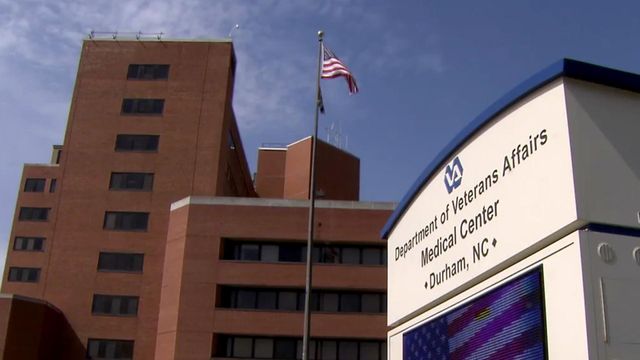Regardless of VA status, veterans in mental health crisis can now get free care
Any veteran in need of emergency mental health care, regardless if they’re enrolled in the Veterans Affairs (VA) system or not, can now walk into any private health care facility with no cost.
Beginning Tuesday, veterans who are experiencing a suicidal crisis will be eligible for free emergency medical care at any VA or private facility.
Dr. Jonathan Leinbach is a psychiatrist and the associate chief of staff for mental and behavioral health services at the Durham VA. He said the VA is changing its policies to help more veterans get the mental health care they need.
The VA already provides emergency suicide care, but with the new benefit, veterans will not have to pay any copays or fees for their care. If veterans receive care at a private facility rather than at a VA facility, the government will cover the costs. The VA will also reimburse veterans for ambulance rides to hospitals.
One way the VA is expanding its care is by changing eligibility requirements for veterans experiencing a mental health crisis. He said a veteran's eligibility will be based on their 'crisis designation,' which will be determined by the evaluating clinician.
"So they're the ones who will assess and evaluate the veteran and determine the level of acuity of that person," Leinbach said.
He said it can be difficult for veterans to navigate the VA and know what services and benefits are available to them.
"And I think that we want to remove that difficulty in any way that we can so that people will seek out the care that they need to get [and] the help that they need, at the time that they need it, and not have to focus on 'Am I eligible? ... Am I going to get taken care of? Is this going to get paid for?'" Leinbach said.
He said it's important that people know the VA is widening its net in terms of cost.
"Financial stress is extremely real, and adds to the burden of mental illness," Leinbach said.
The updated care policy includes:
- Paying for, or reimbursing, treatment of eligible individuals' emergency suicide care.
- Pay for transportation costs and follow-up care at a VA or non-VA facility for up to 30 days of inpatient care and 90 days of outpatient care.
- Making appropriate referrals for care following the period of emergency suicide care.
The new policy will have a great impact on North Carolina, which has a large military population.
It's important that everyone receive the care they need in a moment of crisis, he said, and the VA wants to encourage people to get the help they need.
"I think this is really important ... that we continue to provide care to anyone who comes to the Durham VA in a crisis," Leinbach said. "It doesn't matter; we will take care of that veteran no matter what."
The VA says the suicide rate for veterans in 2020 was more than 57% higher than for those who never served in the military.
The VA will also determine eligibility for other VA services and benefits and make referrals for individuals to other programs following the period of emergency suicide care.
Eligible individuals regardless of VA enrollment status include:
- Veterans who were discharged or released from active duty after more than 24 months of active service under conditions other than dishonorable.
- Former members of the armed forces, including reserve service members, who served more than 100 days under a combat exclusion or in support of a contingency operation either directly or by operating an unmanned aerial vehicle from another location who were discharged under conditions other than dishonorable.
- Former members of the armed forces who were the victim of a physical assault of a sexual nature, a battery of a sexual nature, or sexual harassment while serving in the armed forces.











